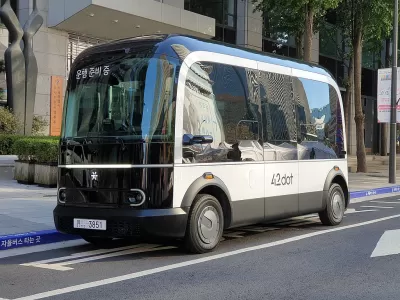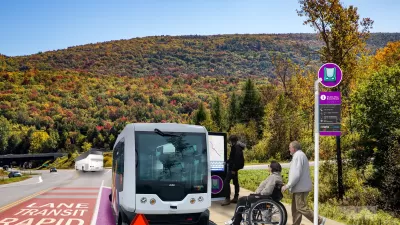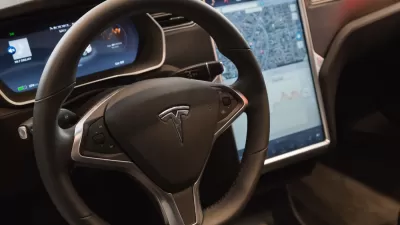According to an assessment of two North Carolina pilot projects, low-speed autonomous shuttles have too many limitations to deploy as a public transit option.

Skip Descant, writing for Government Technology, shares details of a new report that assessed two North Carolina pilot programs testing low-speed autonomous vehicles. The conclusion? The vehicles still have “too many limitations” to be effective as transit solutions, including difficulty managing urban traffic settings and slow speeds that top out at about 12 miles per hour.
“These are some of the findings in a July 2024 report on the use of the autonomous vehicle (AV) shuttles by the North Carolina Department of Transportation (NCDOT). The study examined the use of the vehicles in the city of Cary and at the University of North Carolina (UNC) in Charlotte. Both pilot projects were part of the Connected Autonomous Shuttle Supporting Innovation (CASSI) program,” Descant reports. The two pilots used shuttle technology from Navya Autonom, a French company, and the shuttles were operated by Beep, a Florida-based company.
Despite these less than encouraging results, NCDOT plans to continue into the next phase of the CASSI program, which “could lead the agency to test autonomous systems embedded into more conventional vehicles,” similar to a project in Florida set to begin later this year. Beep and the Jacksonville Transportation Authority will test “14 customized Ford shuttles equipped with Level 4 autonomous technology, capable of traveling up to 37 miles per hour,” according to the Government Tech article.
FULL STORY: Small AV Shuttles Not Yet Suitable for Transit Operations

Trump Administration Could Effectively End Housing Voucher Program
Federal officials are eyeing major cuts to the Section 8 program that helps millions of low-income households pay rent.

Planetizen Federal Action Tracker
A weekly monitor of how Trump’s orders and actions are impacting planners and planning in America.

Ken Jennings Launches Transit Web Series
The Jeopardy champ wants you to ride public transit.

Philadelphia Is Expanding its Network of Roundabouts
Roundabouts are widely shown to decrease traffic speed, reduce congestion, and improve efficiency.

Why Bike Lanes Are Good: An Explainer for the US Transportation Secretary
Sean Duffy says there’s no evidence that bike lanes have benefits. Streetsblog — and federal agencies’ own data — beg to differ.

California Invests Additional $5M in Electric School Buses
The state wants to electrify all of its school bus fleets by 2035.
Urban Design for Planners 1: Software Tools
This six-course series explores essential urban design concepts using open source software and equips planners with the tools they need to participate fully in the urban design process.
Planning for Universal Design
Learn the tools for implementing Universal Design in planning regulations.
Ada County Highway District
Clanton & Associates, Inc.
Jessamine County Fiscal Court
Institute for Housing and Urban Development Studies (IHS)
City of Grandview
Harvard GSD Executive Education
Toledo-Lucas County Plan Commissions
Salt Lake City
NYU Wagner Graduate School of Public Service





























